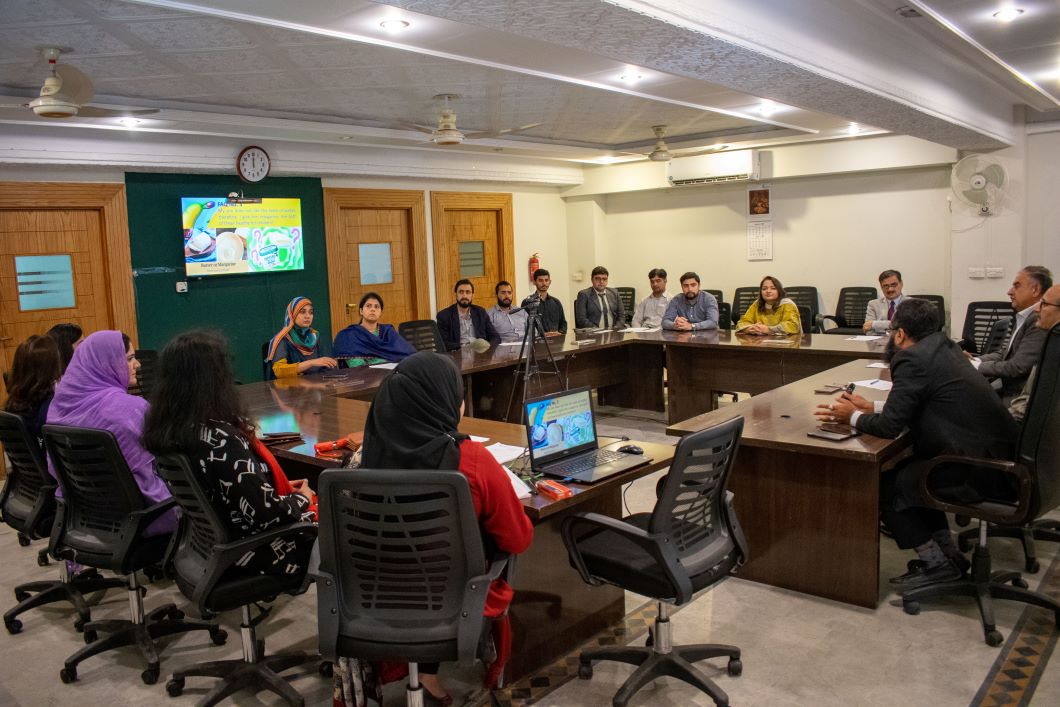
The proverbial saying ‘If it isn’t broken, don’t fix it’ is, oddly, the most consistently followed concept in the history of mankind. However, if dug deeper, it holds the connotation that if we seek to improve something that already functions, we invite unforeseen problems and may just open a can of worms. Unfortunately, in Pakistan, this proverb is wreaking havoc by encouraging our people to use it as an excuse for not salvaging salvageable situations; be it our social issues, economic matters, or poor nutrition.
Health is a state of complete physical, mental, social, and spiritual wellbeing, and not merely the absence of disease or infirmity. Accordingly, diet is one of the most important aspects of healthy lifestyle. Poor nutritional status invites infections, diseases, reduced productivity, decreased life expectancy, and decreased quality of life. On the other hand, good nutritional status is undeniably the cornerstone of good health.
The phrase ‘You Are What You Eat’ simply means that it is important to eat good food in order to be healthy and fit. Nutrients from the foods we eat provide the foundation of the structure, function, and wholeness of every little cell in our body, from the skin and hair to the muscles, bones, digestive, and immune systems. For accentuating the importance of healthy diet in our daily lives, NCL conducted a series of two awareness sessions on 3rd & 4th April 2023 under the adept facilitation of Assistant Professor (NDND) / Consultant Clinical Dietician Dr. Abdul Momin. Both sessions were rewarding and zealously attended by a diverse range of university faculty members, administrative staff, and students at the NUMS PWD Campus.
The facilitator clarified the significance of working upstream in healthcare systems, and how this very concept is often disregarded in our country. Catering to the needs of every patient is practically impossible for any nation, be it developed, developing, or underdeveloped. Hence, the only solution is to efficiently address the root cause of the ever-erupting wellness issues.
Dr. Momin skillfully spelled out the concepts of deficiencies and excesses in nutrient intake, imbalance of essential nutrients, and impaired nutrient utilization to a multifarious group of listeners. His expert advice, wrapped in a friendly bearing, busted many myths regarding health and diet in the minds of his audience by gently stressing that too much of a good thing can also be bad.
NUMS has actively adopted practices and interventions to address historical educational inequity. In order to ensure that, UDO (NUMS) worked alongside the scholarly resource person to confirm that diversity, equity, and inclusion practices were prioritized and executed. Both the awareness sessions concluded with a thank-you note from Consultant Quality Assurance / Head of NCL&RD Directorate (NUMS) Air Cdre Muhammad Ismail, SI (M), (Retd).
These awareness sessions by NCL were undertaken in reference to SDG 2 (Zero Hunger), SDG 3 (Good Health and Wellbeing), SDG 4 (Quality Education), SDG 6 (Clean Water and Sanitation), and SDG 12 (Responsible Consumption and Production).
.jpg)
.jpg)
.jpg)
.jpg)
.jpg)